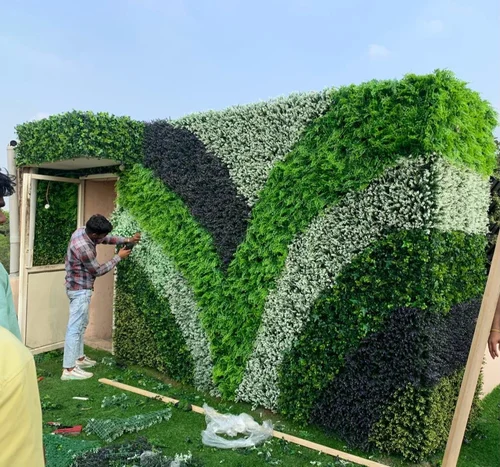
As environmental concerns grow, the landscaping industry is seeking more sustainable alternatives to traditional materials. One area that has seen a green revolution is artificial turf. While once made entirely from non-renewable petroleum-based products, companies are now pioneering recyclable artificial grass solutions.
Traditional artificial grass is made up of plastic grass fibers, an underlying permeable backing, and infill like rubber crumb or sand to support the blades. At the end of its lifecycle – typically 8-15 years – the entire system would be discarded into landfills. However, new generations of artificial grass are designed for simple recycling.
Leading manufacturers have developed artificial grass using polymers that can be recycled into new turf or other plastic products. The grass fibers are made from polyethylene instead of non-recyclable polypropylene and nylon. The backing utilizes polyurethane which is fully recyclable. And the infill comprises environmentally-friendly materials like renewable plant-based substances or reclaimed tennis ball felt.
The recycling process involves separating the components – fibers, backing, and infill – through methods like grinding, melting and extracting. The raw polymer materials can then be reprocessed into new artificial grass or recycled into other plastic goods like containers or furniture. This closed-loop recycling system dramatically reduces waste.
Beyond recyclability at end-of-life, some brands are also incorporating other eco-friendly practices. This includes using bio-based renewable resources, reclaimed materials from other products, and manufacturing powered by renewable energy.
The benefits of recyclable artificial grass extend beyond just diversion from landfills. It conserves precious natural resources and requires less energy to produce versus manufacturing from virgin materials. It also reduces the environmental impact from disposal or deterioration seen with natural grass.
As consumer demand rises for sustainable solutions, recyclable artificial grass is poised to become the new standard for landscaping residential and commercial properties. With its long lifespan, low maintenance and now eco-friendly recycling options, artificial turf offers a conscientious way to have a lush, green lawn all year round.










